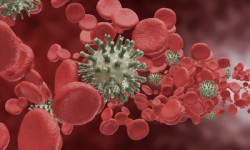
Experts have warned about the use of talcum powder for years, but these claims have been a source of controversy. Researchers have recently put that controversy to rest by publishing the results of a study linking talcum powder to uterine cancer.
Researchers at Brigham and Women’s Hospital found that using talcum powder in the genital area can lead to a higher risk of ovarian cancer in women. In fact, this cancer risk was shown to be about one-third higher in those who use talcum powder. Scientists who participated in this study are calling for manufacturers to place labels on talcum powder products so women who use them are informed of these risks. Talcum powder is believed to raise the risk of ovarian cancer if it gets into the vagina and reaches the upper genital tract.
This study was published shortly after a jury ordered manufacturer Johnson & Johnson to pay the family of a woman who died of uterine cancer $72 million. The family claims that the woman’s use of Johnson & Johnson’s talcum powder products led to her developing this deadly form of cancer.
The Brigham and Women’s Hospital study provides further evidence that there is a link between the use of talcum powder and an increased risk of ovarian cancer. While scientists state that more research is needed, many caution against using this type of powder, especially in the genital area.
Those who are interested in learning more about non-toxic treatments for uterine cancer should contact Issels®. We offer immunotherapy and other types of safe non-toxic treatments for many types of cancer.





